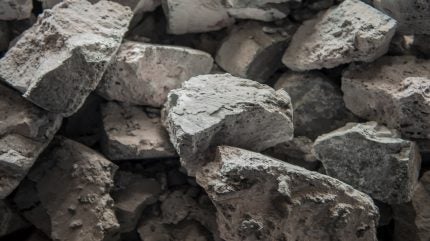
China’s alumina exports surged to their second-highest level on record in March, with overseas sales of aluminium raw material more than doubling from the previous year to 300,000 tonnes (t), according to the latest customs data, reported Bloomberg.
This increase in exports is expected to continue for several months due to an oversupply of alumina.
The alumina market in China has experienced fluctuations recently. Prices soared last year, only to plummet as new production capacity came online, leading to an oversupply that prompted the industry to look for buyers abroad.
This contrasts with other Chinese metal exports such as steel and aluminium, which have faced international scrutiny after saturating global markets. Alumina sales, however, have been limited to a few primary buyers.
Russia, grappling with a feedstock shortage since the Ukraine invasion, was the largest recipient of China’s alumina exports last month, accounting for 48%.
Rusal, Russia’s leading aluminium producer, secured a deal in 2023 with a Chinese plant to address this shortfall.

US Tariffs are shifting - will you react or anticipate?
Don’t let policy changes catch you off guard. Stay proactive with real-time data and expert analysis.
By GlobalDataIndonesia and the United Arab Emirates (UAE) were also significant buyers, taking 19% and 23% of the exports, respectively.
The Chinese Government is implementing measures to curb over-investment, including prohibiting new plants in areas with severe pollution to address the surplus. This directive is in line with policies aimed at other overcapacity-stricken industries such as copper smelting.
The China Nonferrous Metals Industry Association has recently criticised the alumina sector’s haphazard expansion, highlighting the approximately 15 million tonnes (mt) of capacity under construction and over 20mt in the planning stage, which would add significantly to China’s existing 107mt of annual capacity.
In a separate development, the Chinese Government has advised South Korean companies against exporting products containing Chinese rare earth minerals to US defence companies, reported Reuters, citing government and company sources.
The government has cautioned Korean companies that they could face sanctions if they do not comply with the export restrictions.
China, which produces around 90% of the world’s rare earths, has recently imposed export restrictions on these elements in response to US tariffs. Exporters now require licences from the Ministry of Commerce, a process that can be lengthy and opaque.
The US has some stockpiles of rare earths but not enough to sustain defence contractors indefinitely. South Korea has stated it has more than six months’ worth of stockpiles for some of the restricted rare earths.
South Korean officials are preparing for tariff discussions with their US counterparts in Washington, while China issued a warning to countries against broader economic agreements with the US that could be detrimental to its interests.



